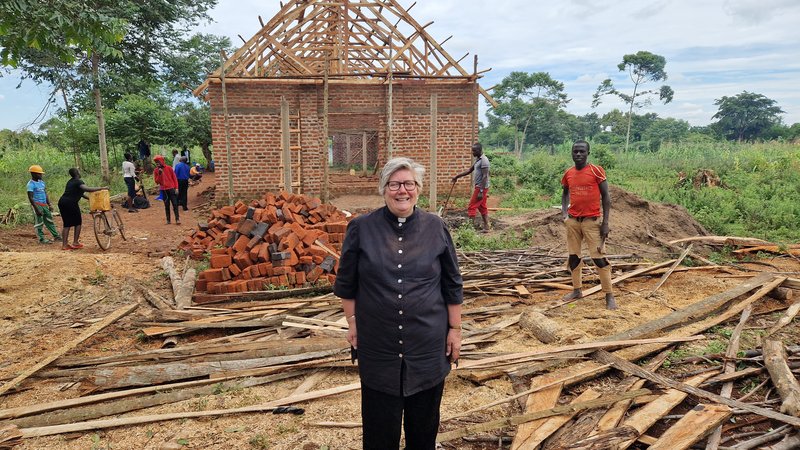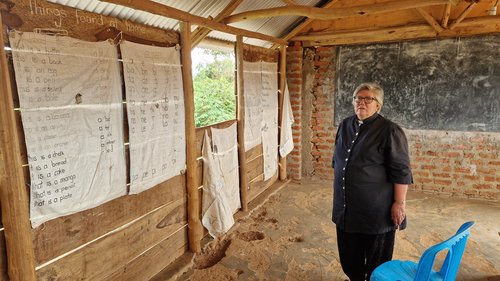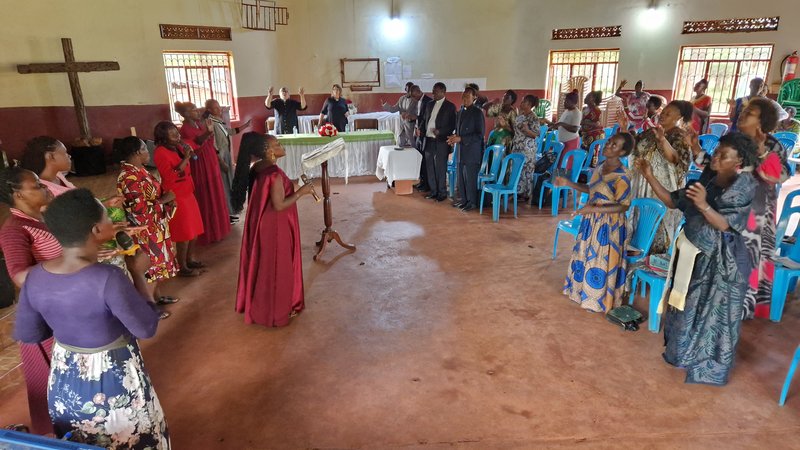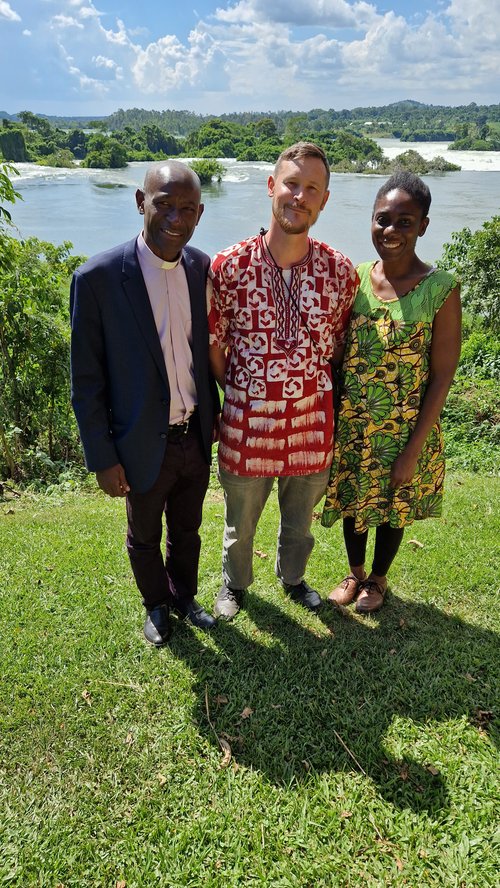Presidential Visit to Uganda
31 October 2024
31 October 2024
Helen Cameron’s Presidential Visit included a few days in Uganda. These were spent with Connexional staff in Jinja, visiting the town ministries including meeting the Women’s Fellowship, and a full day visiting rural circuits a few hours’ drive, mostly on unmade roads We were accompanied on our visit to the rural circuits by Bishop David and Sr. Nirmala, the Development Coordinator of the Synod.

Helen says: The visit to the church community in Inula allowed us to see the roof being put on the new Church building. The level of commitment in this community was extraordinary and inspiring and the generosity towards us was moving. I learned that the phrase, “please eat a little something with us before you go was likely to become a substantial meal”! Uganda is a young Church which is growing rapidly. 70% of the population are under 16. A key plank of Methodist Church mission is therefore to provide educational opportunities in rural areas and pastoral ministry in places unreached by other churches. Sr. Nirmala emphasised the importance of praying that the Church grows spiritually, develops socially through education, and becomes more financially self-sufficient.
At Nambula, we visited the Methodist Primary School which parents and staff had themselves built using local

materials. The school has 600 pre-school and Primary children on roll and 17 staff. It is situated in the centre of a wide rural geographical area with children attending from distant villages. There is a desperate need for boarding facilities that will also bring an income. Some of the MCB Capacity Building Grant sent in 2024 is being used to construct these. The school has partnered with a charity called ‘Compassion’ which provides, spiritual, social, health care, and training in cognitive skills to the children. Nambula School .
We were delighted that a Women’s Fellowship Conference was arranged in honour of Helen’s visit to Uganda. As in most churches globally, women make up the majority of congregants and are the ‘backbone’ of the Church in Africa.

The Methodist Church in Uganda is keen to encourage womens’ ministry although there are still some cultural hurdles to overcome. Helen said: “The Women’s Fellowship event was a time of bible study encouraging the contribution of women in leadership and it was good to see Bishop David make his support for women’s leadership so clear and strong.”
It was wonderful to share our journey in Uganda with our Mission Partners. Daniel and Grace Pratt Morris-Chapman. Daniel and Grace who arrived in Uganda in August 2023. But even though they only spent one year in Uganda (finishing their term in August 2024), they had a profound impact through their presence and ministry. Most Ugandan Methodist members are under the age of 30 and church worship is deeply influenced by Ugandan Pentecostalism.

It has therefore suffered from a lack of training in Methodist 10 tradition and structures. This is affecting the sense of identity and unity within the Church with many churches and ministers tending to ‘do their own thing’ and not knowing anything different. In striving to address these challenges, Daniel translated the Methodist Standing Orders into Luganda, the local language and started a transformative process of training local churches and ministers in Methodist ways and structures. He has provided the tools for the local Church to discern an authentic Ugandan Methodist presence within the country, stressing each community’s place within the structures of the Methodist Synod, Connexion and global family. Daniel has also assisted the Synod Office in establishing robust governance and financial structures that will provide a firm foundation for many years and for the development of the Methodist Church in the country. Meanwhile, Grace has undertaken a significant ministry in teaching, training, and supporting the Women’s Fellowships. Both Daniel and Grace have been deeply appreciated in Uganda and their presence and ministry is a wonderful example of the ways in which the British Church can have a deeply constructive presence and fellowship with its partner Churches.
In reflecting on her time in Uganda, Helen Cameron wrote: “My visit to the Methodist Church in Uganda was a memorable one. It was good to spend time with Grace and Daniel Pratt Morris-Chapman and their children and with Bishop David and the ministers of the Synod. This young Church has so much to share with us in partnership.”